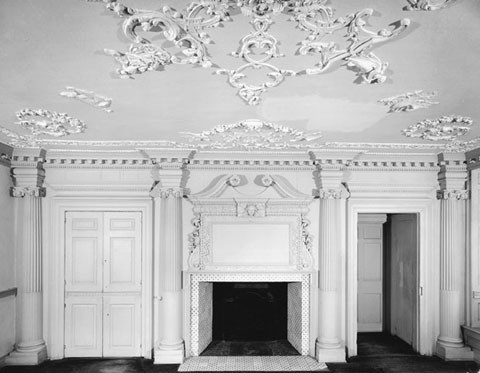
First-floor, southeast parlor, Philipse Manor, Yonkers, New York, ca. 1750. (Courtesy, Philipse Manor Hall State Historic Site, administered by the New York State Office of Parks, Recreation, and Historic Preservation; photo, Gavin Ashworth.)
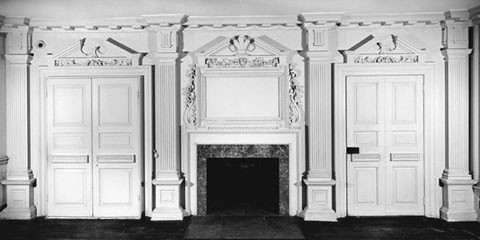
Second-floor, southeast parlor, Philipse Manor. (Photo, Gavin Ashworth.)

Detail of the frieze appliqué of the chimneypiece illustrated in fig. 2.
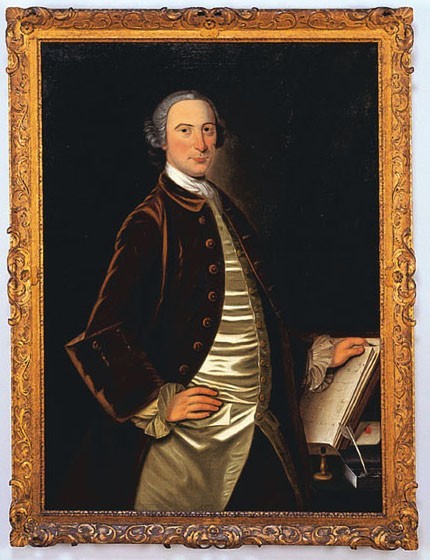
Picture frame by Stephen Dwight, New York, 1762. White pine, gilded. 52 3/4" x 40". (Collection of the New-York Historical Society; photo, Metropolitan Museum of Art.) The frame is on Lawrence Kilburn’s portrait of James Beekman.
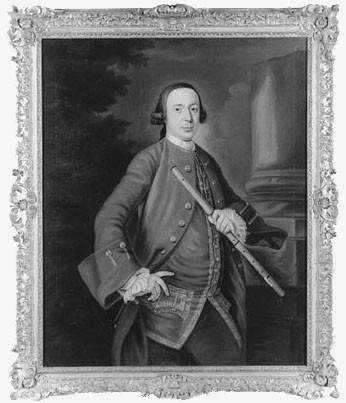
Picture frame, British, ca. 1760. Red pine, gilded. 54 1/4" x 45 3/4". (Collection of the New-York Historical Society; photo, Metropolitan Museum of Art.) The frame is on Lawrence Kilburn’s portrait of Abraham Beekman.
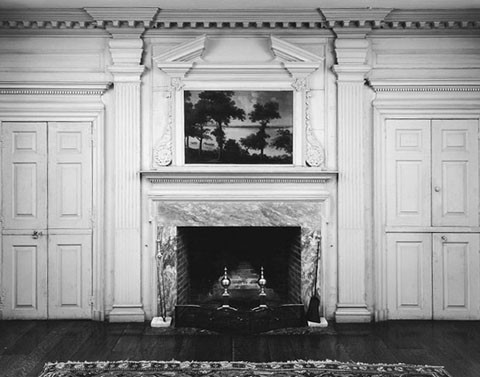
Parlor from Hampton Place, Elizabeth, New Jersey, 1760–1765. (Courtesy, Winterthur Museum.)

Detail of a truss and crossette appliqué on the chimneypiece illustrated in fig. 6.
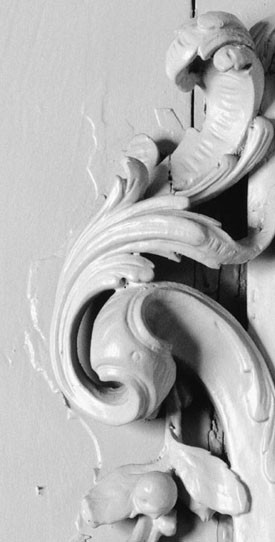
Detail of the left truss of the chimneypiece illustrated in fig. 2. (Photo, Gavin Ashworth.)
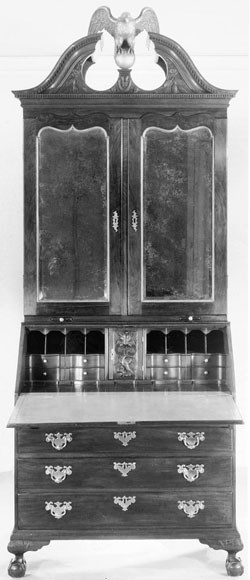
Desk-and-bookcase, New York, 1750–1760. Mahogany with tulip poplar, gum, oak, and mahogany. Dimensions unrecorded. (Private collection; photo, John Walton Antiques.)
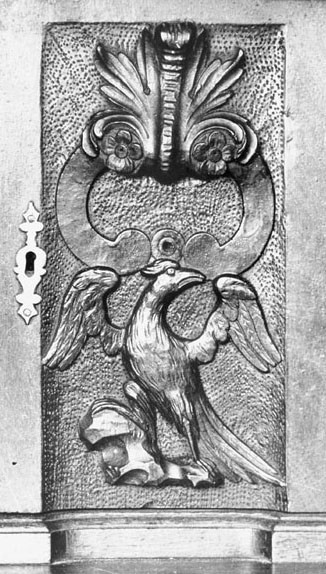
Detail of the relief-carved heron on the prospect door of the desk-and-bookcase illustrated in fig. 9.
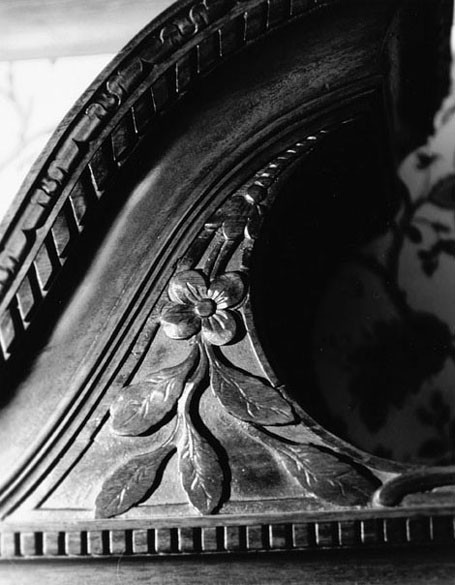
Detail of an appliqué on the scrollboard of the desk-and-bookcase illustrated in fig. 9.
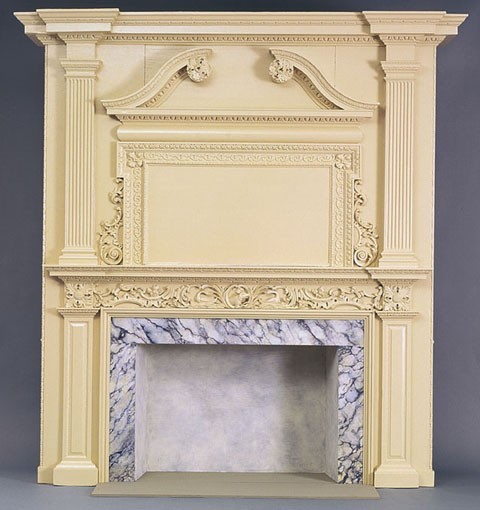
Chimneypiece from Mount Pleasant, New York, 1763–1765. White pine, painted. (Collection of the New-York Historical Society; photo, Metropolitan Museum of Art.)
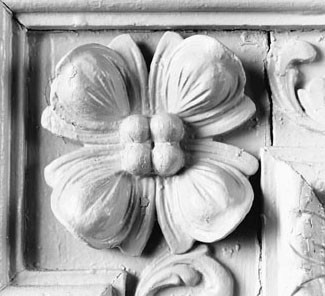
Detail of a crossette appliqué on the chimneypiece illustrated in fig. 12. (Photo, Gavin Ashworth.)
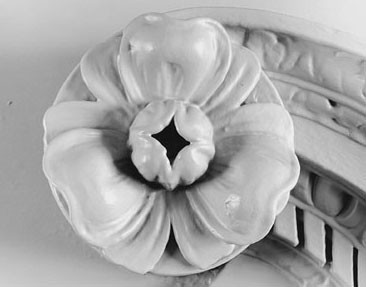
Detail of a rosette on the chimneypiece illustrated in fig. 1. (Photo, Gavin Ashworth.)
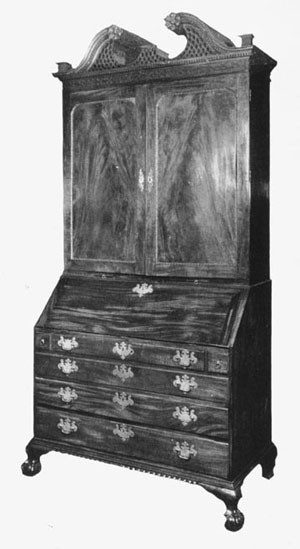
Desk-and-bookcase, New York, 1760–1770. Mahogany with unrecorded secondary woods. H. 106", W. 50", D. 24 1/2".

Detail of the frieze appliqué on the chimneypiece illustrated in fig. 12. (Photo, Gavin Ashworth.) The carver used short, paired gouge cuts to simulate hair and feathers. This distinctive technique appears in work attributed to Henry Hardcastle.

Detail of a truss on the chimneypiece illustrated in fig. 12. (Photo, Gavin Ashworth.)
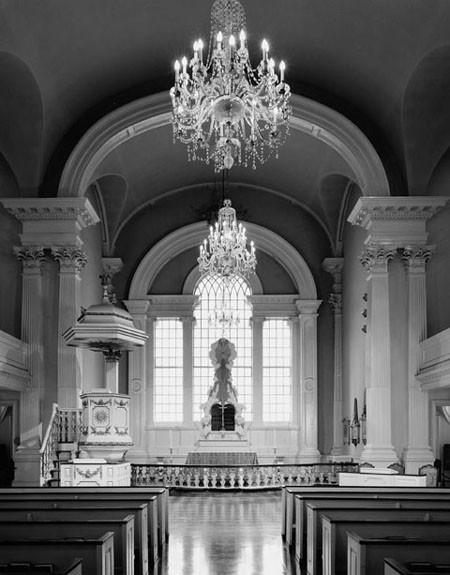
Interior of St. Paul’s Chapel, Broadway and Fulton Street, New York, 1764–1766. (Courtesy, St. Paul’s Chapel, Parish of Trinity Church; photo, Gavin Ashworth.)
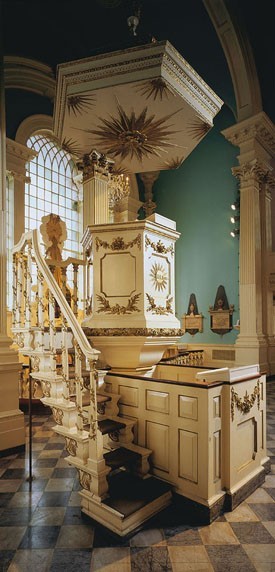
Pulpit in St. Paul’s Chapel, New York, ca. 1765. (Photo, Gavin Ashworth.)
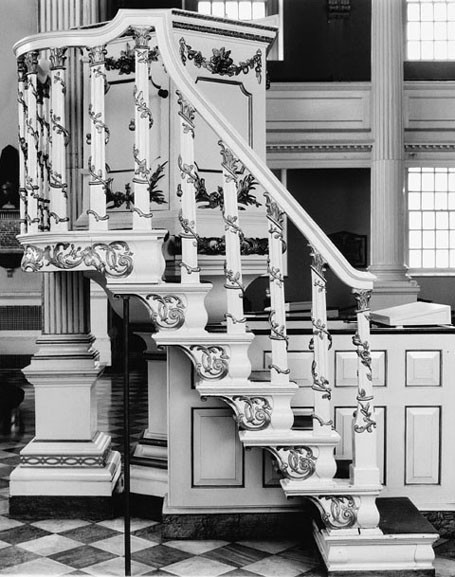
Detail of the stair leading to the pulpit illustrated in fig. 19. (Photo, Gavin Ashworth.)

Detail of the relief-carved frieze of the pulpit illustrated in fig. 19. (Photo, Gavin Ashworth.)
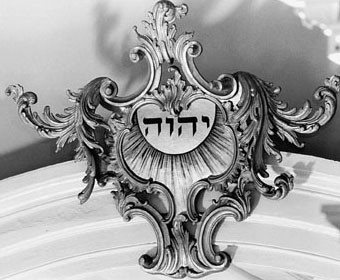
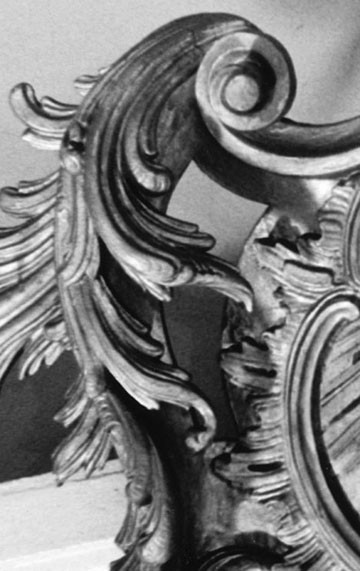
Detail of the acanthus leaves on the cartouche illustrated in fig. 22. (Photo, Gavin Ashworth.)
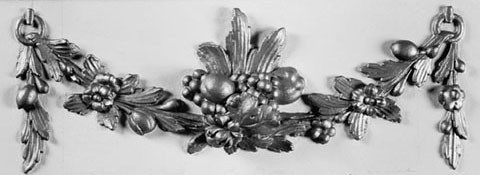
Detail of one of the upper appliqués on the pulpit illustrated in fig. 19. (Photo, Gavin Ashworth.)
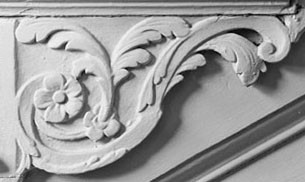
Detail of a stair bracket in Philipse Manor. (Philipse Manor Hall State Historic Site, Yonkers, NY. New York State Office of Parks, Recreation and Historic Preservation.)
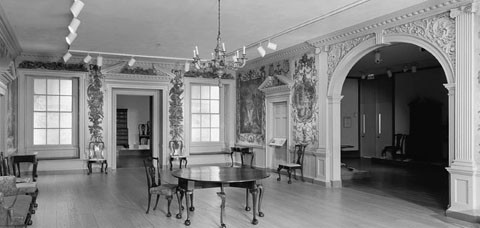
Entrance hall from Van Rensselaer Manor, Albany, New York, 1765–1769. (Courtesy, The Metropolitan Museum of Art, Gift of Mrs. William Bayard Van Rensselaer, in memory of her husband, 1928.(28.I43)All rights reserved, The Metropolitan Museum of Art; photo, Gavin Ashworth.)
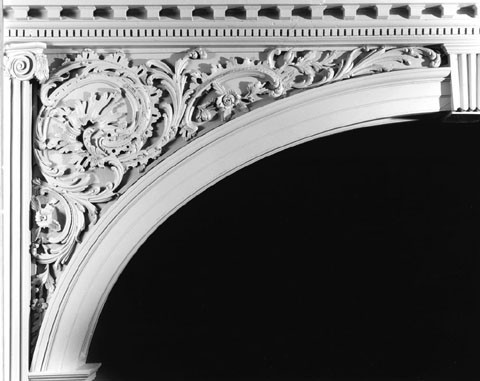
Detail of a spandrel appliqué in the hall illustrated in fig. 26. (Courtesy,The Metropolitan Museum of Art, Gift of Mrs. William Bayard Van Rensselaer, in memory of her husband, 1928. (28.I43) All rights reserved, The Metropolitan Museum of Art; photo, Gavin Ashworth.)
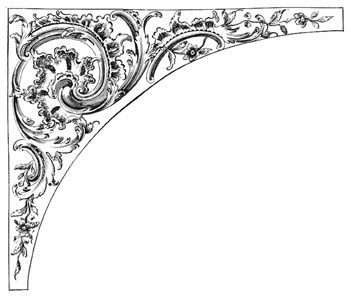
Design for a spandrel illustrated on plate 10 of Matthias Lock and Henry Copland’s A New Book of Ornaments (1st ed. 1752). (Courtesy, Winterthur Museum.)
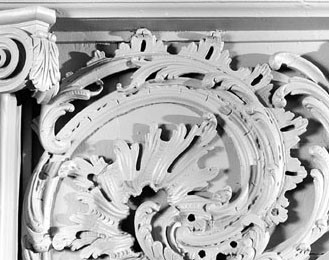
Detail of the acanthus leaves on the spandrel appliqué illustrated in fig. 27. (Courtesy, The Metropolitan Museum of Art, Gift of Mrs. William Van Rensselaer, in memory of her husband, 1928. (28.I43) All rights reserved, The Metropolitan Museum of Art; photo, Gavin Ashworth.)
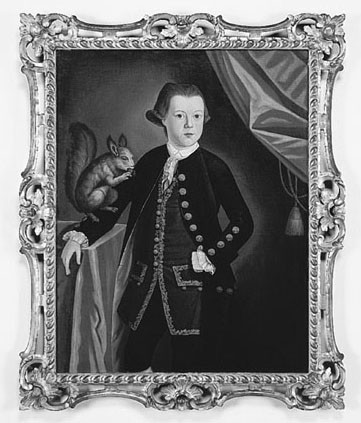
Picture frame by James Strachan, New York, 1767. White pine, gilded. 43 1/2" x 35 1/2". (Collection of the New-York Historical Society; photo, Metropolitan Museum of Art.) The frame is on John Durand’s portrait of James Beekman, Jr.
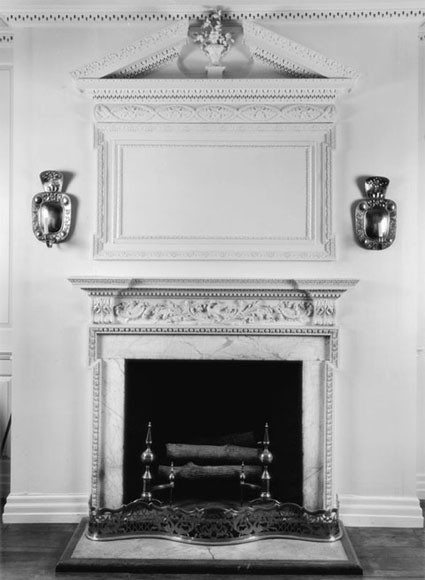
Chimneypiece in the first-floor parlor of Van Cortlandt House, Bronx, New York, 1760–1765. (Courtesy, National Society of Colonial Dames in the State of New York; photo, Gavin Ashworth.)
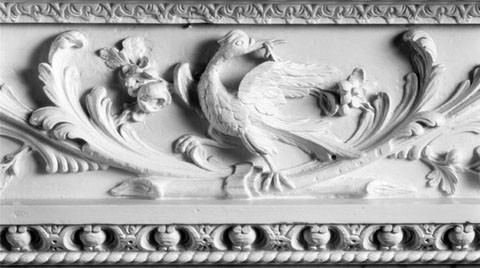
Detail of the frieze appliqué on the chimneypiece illustrated in fig. 31. (Photo, Gavin Ashworth.)
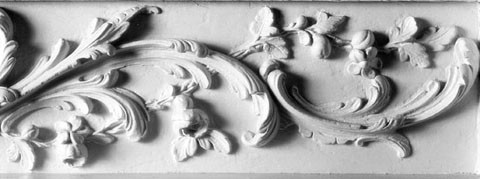
Detail of the frieze appliqué on the chimneypiece illustrated in fig. 31. (Photo, Gavin Ashworth.)
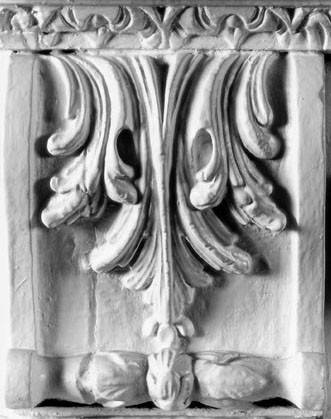
Detail of a truss on the chimneypiece illustrated in fig. 31. (Photo, Gavin Ashworth.)
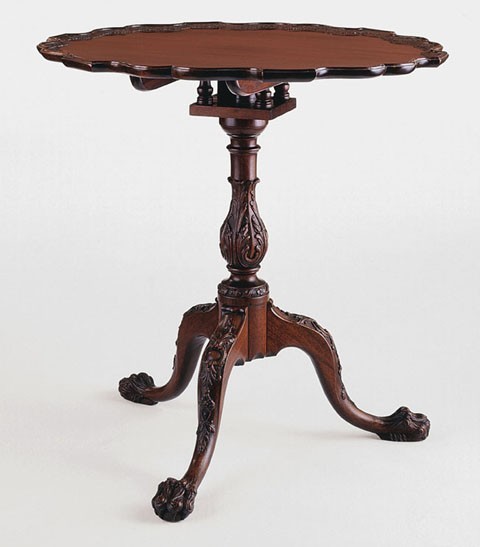
Tea table, New York, 1760–1765. Mahogany. H. 29", Diam. 29". (Chipstone Foundation; photo, Gavin Ashworth.)
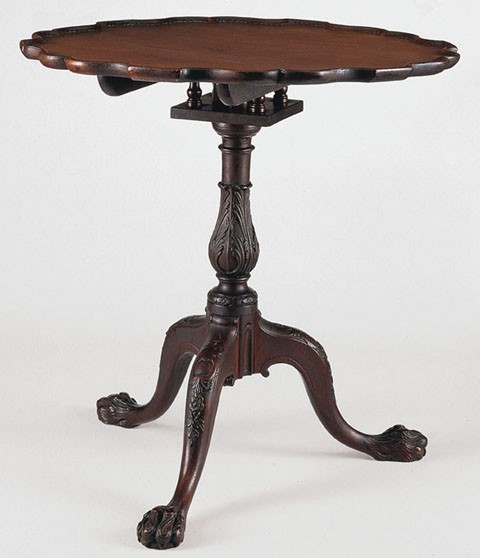
Tea table, New York, 1760–1765. Mahogany. H. 29", Diam. 29". (Private collection; photo, Gavin Ashworth.)
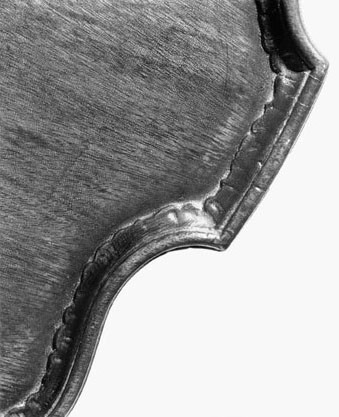
Detail of the edge bead and carving on the top of the tea table illustrated in fig. 36. (Photo, Gavin Ashworth.)
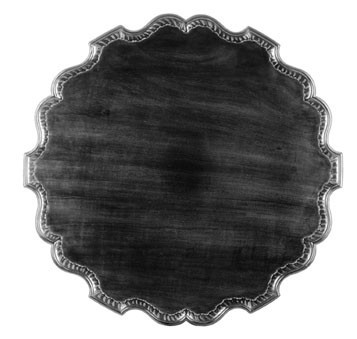
Detail of the top of the tea table illustrated in fig. 35. (Photo, Gavin Ashworth.)
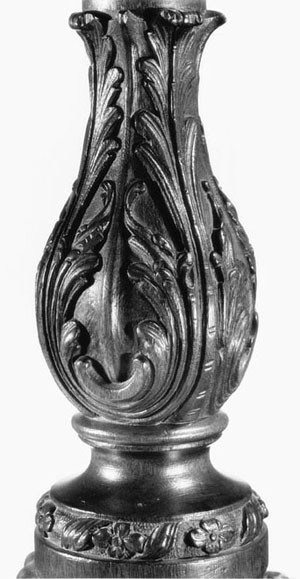
Detail of the baluster of the tea table illustrated in fig. 35. (Photo, Gavin Ashworth.)
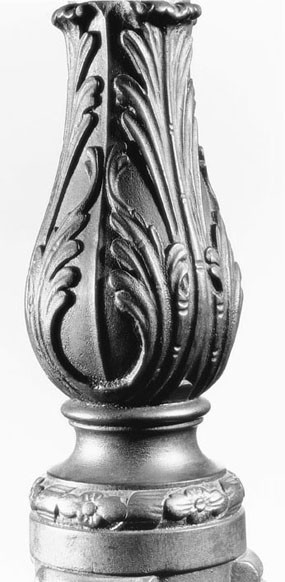
Detail of the baluster of the tea table illustrated in fig. 36. (Photo, Gavin Ashworth.)
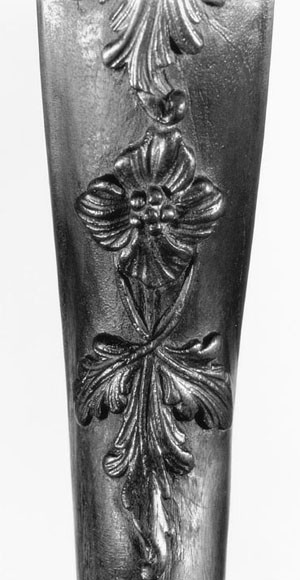
Detail of the knee carving on the tea table illustrated in fig. 35. (Photo, Gavin Ashworth.)
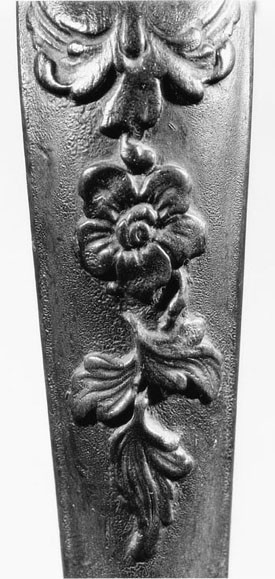
Detail of the knee carving on the tea table illustrated in fig. 36. (Photo, Gavin Ashworth.)
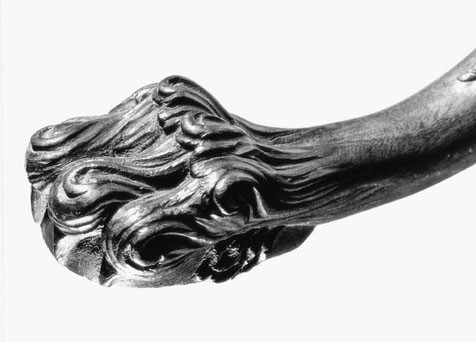
Detail of a paw foot on the tea table illustrated in fig. 35. (Photo, Gavin Ashworth.)
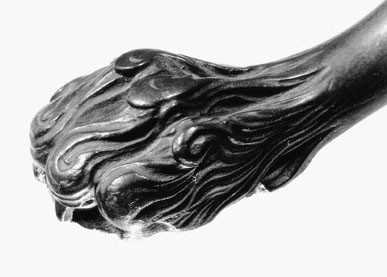
Detail of a paw foot on the tea table illustrated in fig. 36. (Photo, Gavin Ashworth.)
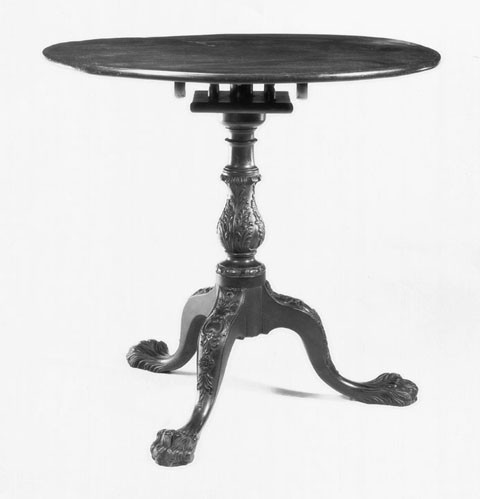
Tea table, New York, 1760–1765. Mahogany. H. 29", Diam. 30". (Courtesy of Sack Heritage Group.) www.sackheritagegroup.com
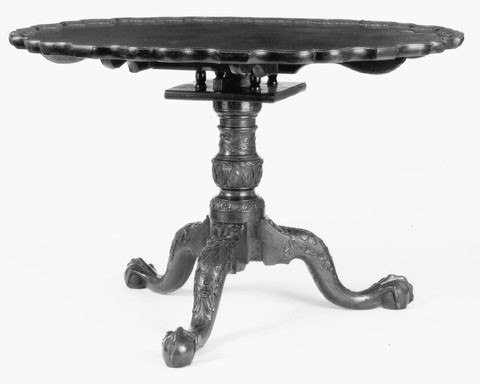
Tea table, New York, 1760–1770. Mahogany. H. 29", Diam. 45 3/8". (Courtesy, National Society of Colonial Dames in the State of New York, Van Cortlandt House; photo, Gavin Ashworth.)
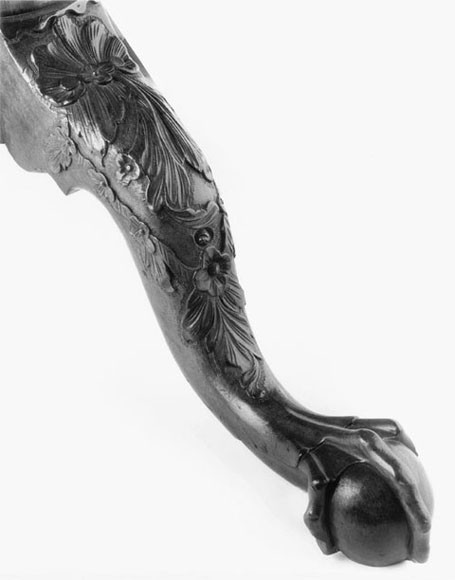
Detail of the knee carving on the tea table illustrated in fig. 46. (Photo, Gavin Ashworth.)
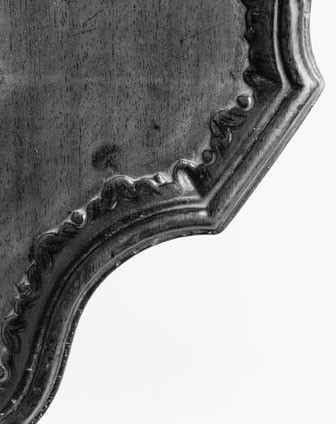
Detail of the edge bead and carving on the top of the tea table illustrated in fig. 46. (Photo, Gavin Ashworth.)
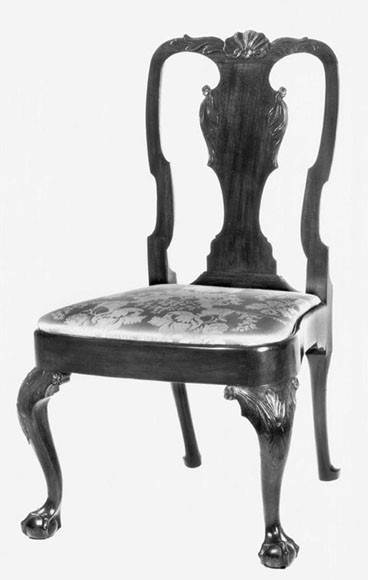
Side chair, New York, 1760–1790. One of a pair. Mahogany, cherry, white oak,. H. 38 7/8", W. 21", D. 21 1/2". (Courtesy, The Metropolitan Museum of Art, Harris Brisbane Dick Fund, 1940.) (40.100.1) All rights reserved, The Metropolitan Museum of Art.
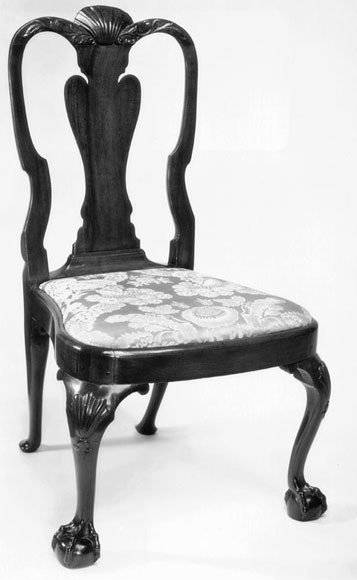
Side chair, New York, 1745–1765. Mahogany; ash slip seat. H. 38 3/4", W. 21 1/2", D. 17 1/2". (Courtesy, Bernard and S. Dean Levy, Inc., New York; photo, Helga Studio.)
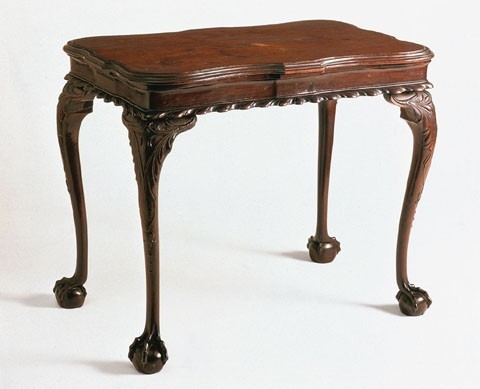
China table, New York, 1750–1765. Mahogany with gum. H. 27", W. 34 3/8", D. 21 1/2". (Courtesy, Winterthur Museum.)
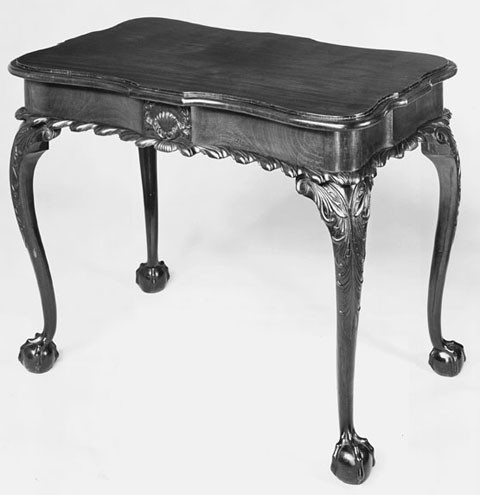
China table, New York, 1750–1765. Mahogany. H. 27", W. 35 1/4", D. 22". (Courtesy, Bernard and S. Dean Levy, Inc., New York; photo, Helga Studio.)
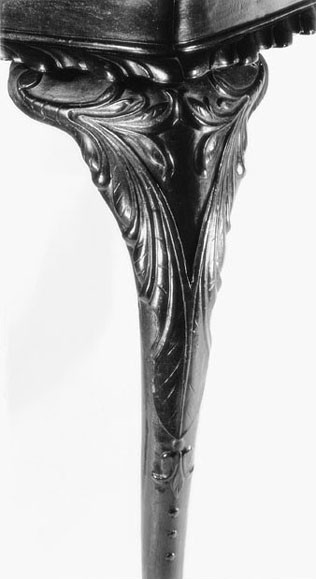
Detail of the knee carving on the china table illustrated in fig. 51.

Detail of the knee carving on the china table illustrated in fig. 52.
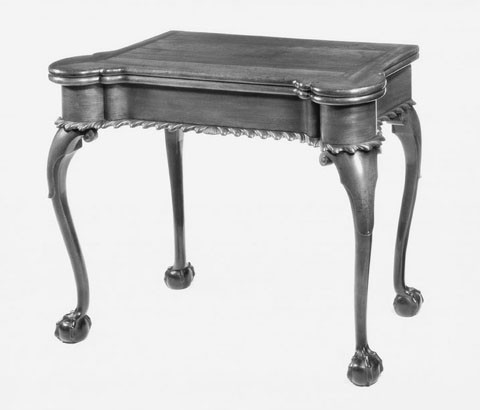
Card table, New York, 1760–1790. H. 28 7/8", W. 37", D. 19" (closed). Mahogany, mahogany veneer, birch, tulip poplar. (Courtesy, The Metropolitan Museum of Art, gift of James DeLancey Verplanck and John Bayard Rodgers Verplanck, 1939.) (39.184.12) All rights reserved, The Metropolitan Museum of Art.
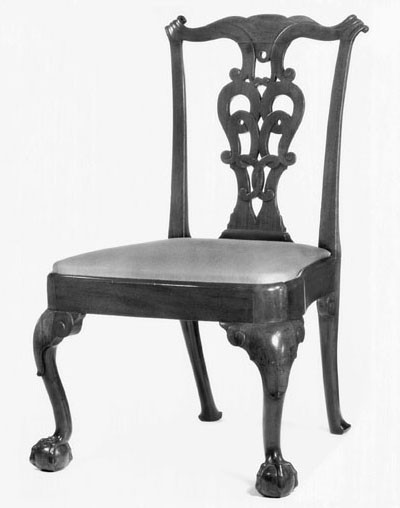
Side chair, New York, 1760–1790. From a set. H. 38 1/2", W. 24 1/2", D. 21 3/4". Walnut, white oak, white pine. (Courtesy, The Metropolitan Museum of Art, gift of James De Lancey Verplanck and John Bayard Rodgers Verplanck, 1939.) (39.184.7) All rights reserved, The Metropolitan Museum of Art.
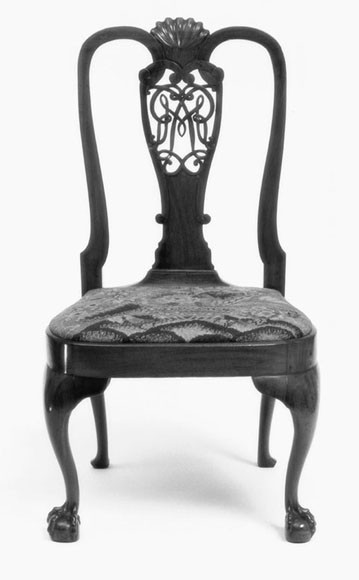
Side chair, New York, 1750–1775. H. 41 1/2", W. 22 1/2", D. 21 1/2". Mahogany; with beech, cherry, eastern pine and soft maple. (Courtesy, The Museum of Fine Arts, Houston; The Bayou Bend Collection, gift of Miss Ima Hogg.)
